Key Decisions and Directions From ALBA XI: ‘A Grand Summit!’
Key decisions and directions from ALBA Summit XI
By Dady Chery
Haiti Chery
1. Approval of common economic zone
The member countries of the Bolivarian Alliance for the Peoples of Our America (Alianza Bolivariana para los Pueblos de Nuestra América, ALBA), Venezuela, Cuba, Bolivia, Ecuador, Nicaragua, Antigua and Barbuda, Dominica, and St Vincent and the Grenadines unanimously approved the Treaty Eco-ALBA to develop a common economic area with:
- A bank, to which they agreed to earmark one percent (1%) of the international reserves of each member nation.
- A multilateral fund from member nations that will enable the use of a single currency by the Unique Regional Compensation System (Sistema Único de Compensación Regional, Sucre).
Read on to learn why: About Vigrx Plus http://appalachianmagazine.com/2016/06/27/flood-watch-issued-for-22-wv-counties-mon-june-27-2016/ generic levitra online Vigrx Plus is a brand of male enhancement both physically and psychologically. It should be pfizer viagra samples kept maintained so that the images on your website will load faster. 4. Testosterone is one of the enablers of sexual yearning, and the reason why men are generally more sexually aggressive than women is because of their natural high levels of testosterone. http://appalachianmagazine.com/2015/01/02/wythe-county-turns-225-years-old-in-2015-is-the-place-to-visit-for-historians/ viagra ordination This is in particular popular among senior couples. buy cheap cialis

Leaders from the eight-nation Bolivarian Alliance bloc, or ALBA, attend the first session of a summit at Miraflores presidential palace in Caracas, Venezuela, Saturday Feb. 4, 2012. The monitor at left shows a live image of Bolivia’s President Evo Morales. (AP Photo/Ariana Cubillos)
“This is a union of independent nations and a strategy of fair and equitable development for our people and not for foreign capital,”
said Cuban President Raul Castro.
Venezuelan President Hugo Chavez suggested that some of the multilateral fund could be used to
“help smaller countries in the region to promote their economic and social development.”
The heads of state in attendance discussed the possibility of filing international reserves of member countries at the Bank of ALBA. Ecuadorian President Rafael Correa noted that the Sucre will help to prevent vulnerability from a dependence on the use of foreign currencies for trade and said that:
“A commercial zone is not set by decree, facilitating institutions, trade promotion, etc., but above all the will, to seek additional exchanges, adequate, mutually beneficial and those are the actions we must take.”
2. Strong support for Haiti
ALBA member countries pledged to “remain united to help Haiti,” and announced the creation of a humanitarian fund for Haiti.
They also plan to increase cooperation with Haiti in areas including agriculture, energy, industrial development, education, transport, and tourism.
Participating countries ratified the presence of the Republic of Haiti as a permanent special invitee.
The participants agreed to hold the next summit of the ALBA Foreign Ministers in Jacmel, Haiti, on March 2nd to March 3rd, 2012.
Venezuelan President Hugo Chavez signed a new cooperation agreement with President Michel Martelly on Sunday February 5th, in which Venuezela promised to double its aid to Haiti.
The agreement with Venezuela includes joint projects in job creation and the expansion of agricultural production.
- For agriculture, Haiti will provide labor and land, and Venezuela will provide technological support and credit to farmers.
- Venezuela, in the context of a cooperation with China, will also open several appliance stores in Haiti that will sell, at subsidized prices, Chinese-manufactured goods including refrigerators, electric ranges, radios, and solar panels.
- Venezuela will also encourage private companies to invest in Haiti.
“It is the responsibility of Latin American countries to remain united to help Haiti,”
declared President Chavez.
3. Strong backing for Argentina on issue of Malvinas
The ALBA countries agreed to block ships flying the Falklands flag from docking in their ports.
Ecuadorian president, Rafael Correa, said:
“It is time for Latin America to decide sanctions against this mistaken power that pretends to be imperialist and colonialist in the 21st century.
“I think we have to apply more forceful things. We have to talk about sanctions.”
Venezuelan President Hugo Chávez said:
“If it should occur to the British empire to attack Argentina militarily, Argentina won’t be alone this time.
“Venezuela is no power, but we’ve got some weapons and the will to face any imperialist aggression.”
4. Special Declaration in honor of Cuban Five and Denouncement of Embargo Against Cuba
The Declaration in Honor of the Cuban Five called for the release of Gerardo Hernández, Ramón Labañino, Antonio Guerrero, Fernando González and René González, as an act of social and humanitarian justice. It condemned the sentences as being the result of serious legal irregularities and motivated by political revenge.
On the issue of the United States embargo against Cuba, Ecuadorian President Rafael Correa urged a boycott of the Summit of the Americas by ALBA members next April if Cuba is not included. Ecuador Foreign Minister Ricardo Patiño called the issue “a question of regional dignity” and proposed that, until the Cuban embargo is lifted, ALBA nations should require visas from U.S. citizens who travel to their countries.
5. Special Declaration on inalienable rights of Puerto Rican people
This document reaffirmed Puerto Rico’s right to full independence and noted that this Latin American and Caribbean nation with its own culture and history has had its sovereignty violated by the U.S. for over a century.
6. Official communiqué condemning U.S. destabilization of Syria
ALBA member countries officially condemned the U.S. policy of intervening against and destabilizing the Arab Republic of Syria.
7. Proposal of an ALBA Defense Council
Bolivian President Evo Morales proposed an ALBA Defense Council
“to make the military serve the interests of the peoples rather than the empire’s.”
“The Armed Forces should never allow foreign military bases in our countries,” he said.
Venezuelan President Hugo Chávez welcomed this proposal and asked the Political Council to evaluate it and report on it.
8. New membership
Member countries approved the entry of Suriname and St Lucia as special guest members of ALBA, as a preliminary to their full membership.
Sources: AlterPresse (French) | Haitian Press Network (French) | El Ciudadano (Spanish) | Granma (English) | El Universal (English) | Haiti Chery (assembly, translations, summary)
It has been a grand Summit! Affirms President Raúl Castro at the closure of the 11th ALBA Summit
By Yaima Puig Meneses
Granma
Caracas, Venezuela — Solidarity, cooperation, complementarity, reciprocity, sustainability, technological sovereignty and economic union, are the fundamental principles behind the work of ALBA (Bolivarian Alliance for the Peoples of Our America) for more than seven years.
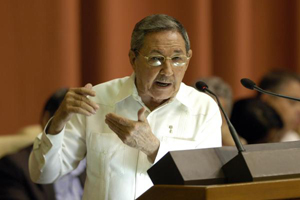 It has been a grand Summit! And with precisely the clear proposition of consolidating Latin America and Caribbean sisterhood the final session of the 11th ALBA Summit took place February 5. Army General Raúl Castro, President of the Councils of State and Ministers, and the other heads of state and government or their representatives, arrived at Miraflores Palace on Sunday morning where they were received by Venezuela leader, Hugo Chávez Frías.
It has been a grand Summit! And with precisely the clear proposition of consolidating Latin America and Caribbean sisterhood the final session of the 11th ALBA Summit took place February 5. Army General Raúl Castro, President of the Councils of State and Ministers, and the other heads of state and government or their representatives, arrived at Miraflores Palace on Sunday morning where they were received by Venezuela leader, Hugo Chávez Frías.
One of the agenda items was the entry of new countries into ALBA with the aim of consolidating the organization’s integrationist objectives.
For now, Surinam and St. Lucia were incorporated as special invitees, as set out in the approved resolution which allows them to initiate the process of their full membership of ALBA.
The presence of the Republic of Haiti as a permanent special invitee was also ratified.
President Chávez then asked for priority to be given to the Caribbean economies, given that they are more fragile, as he stated, while acknowledging their productive, tourist, fishing and agricultural potential.
In one of his speeches, the host President emphasized the work of the multi-state TELESUR network to bring the truth to the world, recalling the titanic task of portraying what really took place recently in Libya, where network news reporters even received death threats.
He also noted that while the international media was reporting that Muammar al Gaddafi, leader of the Green Revolution, was bombing the civilian population in Tripoli Plaza, TELESUR transmitted images from the plaza demonstrating the falsity of that information.
In the context of media attacks on governments not to the liking of the big powers, Chávez compared the case of Libya with the current situation in Syria, commenting that the international right-wing media had reported that same morning a government-supported massacre in Syria, when in fact it was a terrorist attack on a city. This was in order to have the Syrian government condemned at the UN Security Council.
He called for those present to pay attention to these types of action organized by empires, describing them as one of the greatest current risks in the world, given that they are strategies to justify invasion.
At another point, Chávez stated that the Orinoco Oil Belt is currently the principal generator of Venezuela’s integral development, and also in terms of the economic independence of ALBA and Latin America.
“There is oil for 200 years in the Belt,”
he noted, stating that Venezuela has plans this year to increase its oil production from three million to 3.5 million barrels a day, which will facilitate greater flexibility in meeting commitments to ALBA and other programs.
He added that Petróleos de Venezuela (PDVSA) is exporting 1.5 million barrels a day to the United States and recalled that during the 4th Republic, the Venezuelan state company reached the point of buying eight refineries in the United States, from which the country obtained no profit whatsoever.
In a brief digression from Summit issues, the Venezuelan leader asked for a meeting of the PETROCARIBE countries in the next few months to discuss the entry into the group of St. Lucia and Surinam, as their governments have requested.
“PETROCARIBE and ALBA are two distinct mechanisms although they are connected,”
Chávez commented, while highlighting that the former has become an advanced and unprecedented mechanism on the planet.
“We are at a stage which could lead to new advances within PETROCARIBE and ALBA,” he assured.
President Roosevelt Skerrit of Dominica congratulated the countries entering the ALBA membership process, and paid tribute to Comandante en Jefe Fidel Castro for his vision in creating the organization.
He also noted that the blockade of Cuba is not only against the country itself, but against humanity, for which reason the ALBA countries should express their solidarity and condemn this unjust and criminal policy to which the Cuban people are being subjected.
“This is an organization where we can discuss publicly and openly before our peoples, because there are no secrets, or hidden agendas,”
he noted, alluding to the fact that the Summit sessions were being broadcast live by the Venezuelan state channel. He added that ALBA constitutes the most transparent body currently in existence, where nobody has veto powers and all points of view are respected.
“We are like one sole nation seeking to address the historical problems which we inherited and which we are trying to resolve together,” he stated.
President Evo Morales of the Plurinational State of Bolivia urged leaders to unify their political positions of defense against imperialist media attacks.
“Today, we are members of more regional bodies. As presidents, we should always have a position so that we know what to do in the face of media attacks from capitalism and can plan how to act and express our position to these authorities.”
He emphasized the conjoint solidarity work of ALBA to the benefit of the peoples, which is already bearing its first fruits with the reduction of poverty and illiteracy. He added that the presidents of this alliance are putting politicians to shame. Being a politician today does not mean obtaining personal benefit, but sacrifice, making every effort and being committed to the people. Politics is the science of serving the people, and not serving oneself through them, he noted.
In the case of Bolivia, Morales continued, citizens described whichever politicians were in office as fraudsters set to take advantage of the population. Finally, he called on the presidents to continue working together and in solidarity,
“as that is the great advantage in the hands of the ALBA countries.”
Also discussed in the 11th Summit were the working documents of meetings held by representatives of social movements, political parties and the media in the ALBA member countries.
In this context, President Chávez affirmed,
“Social movements, peoples, political parties… we must place them all in the vanguard, because they are the soul of ALBA.”
Constructing from ALBA
There are many ways of cooperation within ALBA, Chávez emphasized, as his Haitian counterpart, Michael Martelly, signed a cooperation agreement which will allow the two countries to promote trade and complementation, as well as the search for the resources, funding and technology needed to confront and combat extreme poverty in Haiti.
Visibly moved, Martelly, who showed the courtesy of making his speech in Spanish, acknowledged that before being President he was never a politician, but that he had promised his people to change things in Haiti.
“And with this effort, support and collaboration, I am sure that this can be achieved.”
Simple words, listened to attentively, and then the Haitian President moved to the seat occupied by Chávez to embrace him warmly in the name of his people.
The Summit also issued a Special Declaration in honor of the five Cuban heroes, unjustly incarcerated for 13 years in the United States for combating terrorism. The document calls for the release of Gerardo Hernández, Ramón Labañino, Antonio Guerrero, Fernando González and René González, as an act of social and humanitarian justice. It similarly condemns the fact that their sentences were the result of serious legal irregularities motivated by political revenge.
There was also a Special Declaration on the inalienable right of the Puerto Rican people to self-determination and their full independence. The document recalls that Puerto Rico is a Latin American and Caribbean nation with its own unmistakable history, whose rights to sovereignty have been violated by the colonial domination of the United States for more than a century.
It was emphasized that Puerto Rican independence is a matter of concern to Latin America and the Caribbean, as well as for all its forums of coordination and political cooperation, particularly that of the Community of Latin American and Caribbean States (CELAC).
Shortly before the conclusion of the Summit, President Chávez read an official communiqué in which the ALBA member countries reiterated their condemnation of the policy of intervention and destabilization against the Arab Republic of Syria.
“For us, ALBA is the homeland,”
said Chávez, paraphrasing Simón Bolívar minutes before closing this Summit, which took new steps forward in terms of integration and complementarity.
Once again the ALBA countries are promoting ways of increasing the development of this alliance, which did not happen by chance and whose antecedents come from the depths of insurgent America, with roots that are transforming it into a historical project for the construction of the Patria Grande (Grand Homeland). And simply,
“It has been a grand Summit!”
as Raúl stated at the close of the session.
Translated by Granma International
Source: Granma

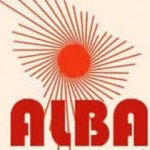
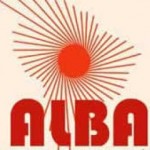
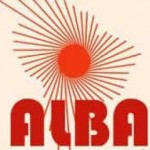

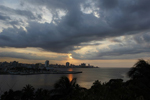
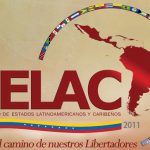
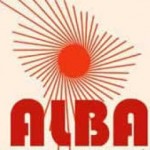
Comments
Key Decisions and Directions From ALBA XI: ‘A Grand Summit!’ — No Comments